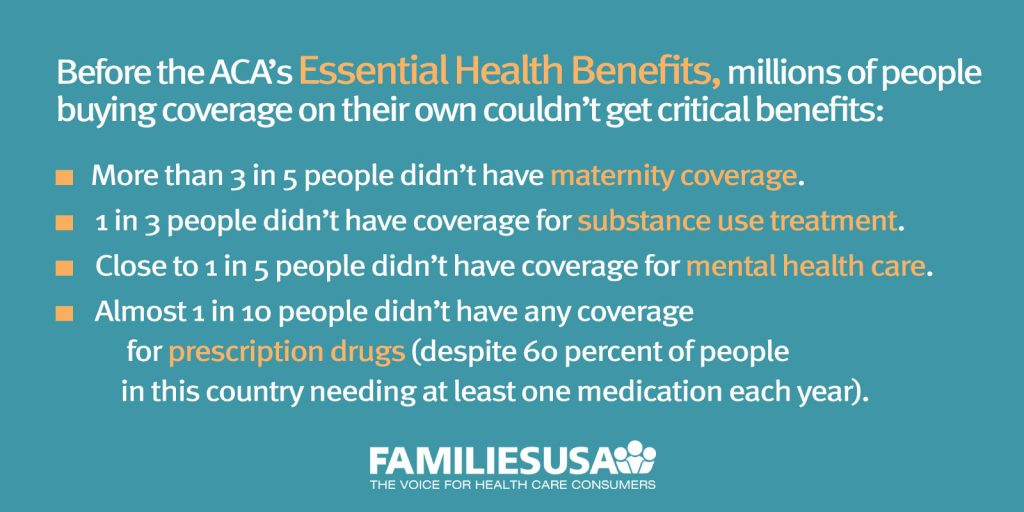The Of Medicare Advantage Agent
The Of Medicare Advantage Agent
Blog Article
Medicare Advantage Agent for Beginners
Table of ContentsThe Medicare Advantage Agent DiariesAn Unbiased View of Medicare Advantage AgentMedicare Advantage Agent Things To Know Before You BuyThe Greatest Guide To Medicare Advantage AgentHow Medicare Advantage Agent can Save You Time, Stress, and Money.Examine This Report on Medicare Advantage AgentSome Ideas on Medicare Advantage Agent You Need To Know

Health and wellness treatment protection aids you obtain the treatment you require and safeguards you and your household financially if you get sick or wounded. Enjoy: Are you unexpectedly needing health insurance? All health intends need you to.
Some Known Details About Medicare Advantage Agent
pay some of the cost of your health careWellness
You'll also have a copayment if you go to the emergency clinic or see a professional. The quantities differ by plan. is a quantity you spend for a protected service after you have actually satisfied your deductible. It's typically a percentage of the price of the service. Your health plan could pay 80 % of the expense of a surgical treatment or health center keep.
The percentage you pay in coinsurance differs by strategy. Federal regulation establishes limits on the amount you pay out of pocket in a strategy year.
The 2-Minute Rule for Medicare Advantage Agent

The four kinds are: HMO strategies. Unique provider (EPO) strategies. Preferred copyright (PPO) strategies. Point-of-service strategies. All four kinds are taken care of care strategies. This means they agreement with physicians and other health and wellness treatment providers to treat their members at reduced rates. These companies make up a plan's network. Handled treatment strategies restrict your choice of medical professionals or encourage you to make use of medical professionals in their networks.
The plans vary in the extent to which you can make use of medical professionals outside the network and whether you must have a doctor to oversee your treatment. You should make use of service providers in the HMO's network. If you don't, you may need to pay the full cost of your care yourself. There are exemptions for emergency situations and if you need treatment that isn't available in the network. Medicare Advantage Agent.
The amounts differ by strategy. Your health strategy could pay 80 % of the cost of a surgery or healthcare facility keep.
Excitement About Medicare Advantage Agent
The percentage you pay in coinsurance varies by plan. You generally do not need to pay coinsurance in an HMO. Federal legislation sets restrictions on the quantity you pay of pocket in a strategy year. Some strategies have reduced out-of-pocket restrictions. After you get to the restriction, you don't have to pay copayments or coinsurance for the remainder of the strategy year.
A strategy year is the 12-month period from the day your protection began - Medicare Advantage Agent. There are 4 kinds of significant clinical health and wellness strategies in Texas.
The 4 types are: HMO plans. Special company (EPO) plans. Preferred provider (PPO) plans. Point-of-service plans. All 4 kinds are handled care strategies. This indicates they contract with doctors and various other healthcare carriers to treat their members at discounted rates. These carriers compose a plan's network. Taken care of care strategies restrict your choice of medical professionals or urge you to utilize physicians in their networks.
The plans differ in the extent to which you can make use of medical professionals outside the network and whether you have to have a medical professional to supervise your treatment. You should make use of companies in the HMO's network. If you don't, you could have to pay the full expense of your treatment on your own. There are exceptions for emergencies and if you require treatment that isn't available in the network.
4 Easy Facts About Medicare Advantage Agent Shown
You'll additionally have a copayment if you most likely to the emergency clinic or see an expert. The amounts vary by plan. is an amount you spend for a covered solution after you've satisfied your deductible. It's usually a percentage of the cost of the solution. For instance, your health and wellness plan might pay 80 % of the price of a surgical treatment or medical facility stay.

The portion you pay in coinsurance varies by plan. You generally do not need to pay coinsurance in an HMO. Federal regulation establishes limitations on the quantity you pay of pocket in a strategy year. Some strategies have lower out-of-pocket limitations. After you get to the limit, you don't need to pay copayments or coinsurance for the remainder of the strategy year.
A strategy year is the 12-month period from the day your insurance coverage began. For circumstances, if your protection started on September 1, your plan year lasts till August 31. Learn extra: How to conserve cash at the doctor Treatment choices and costs There are four sorts of significant clinical health insurance plan in Texas.
The four types are: HMO plans. Unique copyright (EPO) strategies. Preferred copyright (PPO) plans. Point-of-service plans. All 4 types are handled treatment strategies. This suggests they contract with doctors and various other healthcare companies to treat their participants at discounted prices. These companies compose a plan's Recommended Site network. Handled treatment plans limit your choice of doctors or encourage you to make use of doctors in their networks.
Indicators on Medicare Advantage Agent You Need To Know
The strategies differ in the degree to which you can utilize doctors outside the network and whether you should have a doctor to supervise your treatment. If you do not, you could have to pay the complete cost of your treatment yourself.
You'll likewise have a copayment if you most likely to the emergency space or see a specialist. The quantities vary by strategy. is an amount you pay for a protected solution after you've fulfilled your deductible. It's generally a percentage of the price of the solution. As an example, your health insurance could pay 80 % of the price of a surgery or health center keep.
The percentage you pay in coinsurance visit here varies by plan. You typically don't need to pay coinsurance in an HMO. Federal regulation sets limits on the quantity you pay out of pocket in a plan year. Some plans have lower out-of-pocket limitations. After you reach the restriction, you do not need to pay copayments or coinsurance for the remainder of the strategy year.
A plan year is the 12-month period from the day your insurance coverage started. For circumstances, if your coverage began on September 1, your plan year lasts up until August 31. Find out more: How to conserve cash at the doctor Treatment alternatives and prices There are 4 kinds of significant clinical health insurance plan in Texas.
Medicare Advantage Agent Things To Know Before You Get This
The four kinds are: HMO strategies. Special company (EPO) strategies. Preferred copyright (PPO) strategies. Point-of-service plans. All four kinds are taken care of care plans. This suggests they contract with physicians and other health and wellness treatment providers to treat their participants at discounted prices. These service providers make up a strategy's network. Taken care of care plans limit your choice of medical professionals or urge you to use doctors in their networks.
The strategies vary in the level to which you can from this source utilize medical professionals outside the network and whether you must have a doctor to oversee your care. If you do not, you may have to pay the complete expense of your treatment yourself.
Report this page